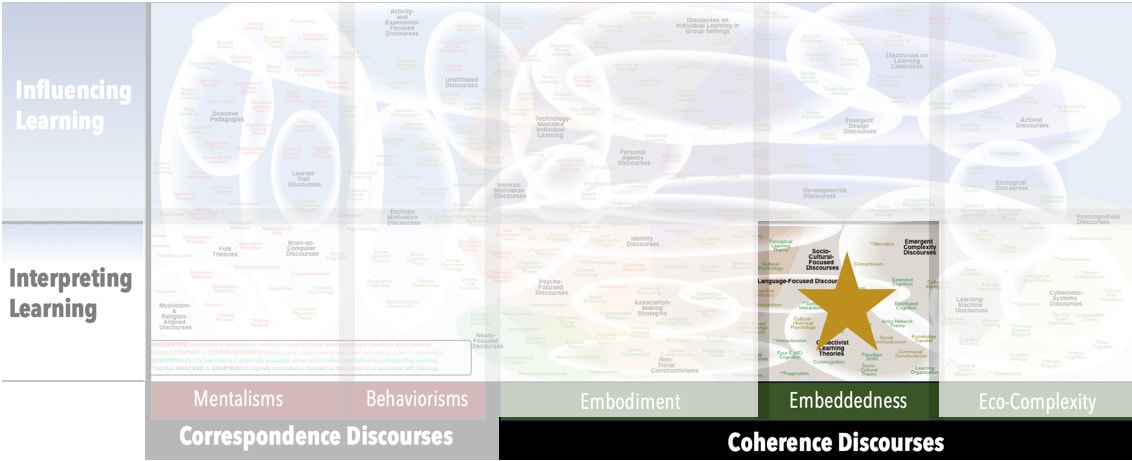Focus
Location and movement of expertise in an organizationPrincipal Metaphors
- Knowledge is … scope of possible actions and interpretations
- Knowing is … ability to wield and apply facts, data, and other information
- Learner is … a brain, a person, a social system, and/or an organization
- Learning is … transferring knowledge
- Teaching is … any practice that supports appropriate knowledge transfer
Originated
1990sSynopsis
Knowledge Transfer refers to means and methods of moving knowledge among parts of an organization to enable innovation and problem solving. Knowledge Transfer is complex because knowledge is more than information, much knowledge is not explicit, and knowledge tends to be distributed. Connected to the last point, there are many types and locations of knowledge in an organization, including embrained (conceptual understandings), embodied (contextual practices), encultured (shared sensibilities), embedded (tacit, within routines), and encoded (recorded and conveyed through symbols). Associated discourses include:- Knowledge Translation – the process of reframing research-based insights so that they are comprehensible to and usable by practitioners
Commentary
Perhaps the biggest issue faced by proponents of Knowledge Transfer is that the phrase is used in many different ways. For instance, it is frequently conflated with training or used as a synonym for “information transfer.” As a theory, Knowledge Transfer has been criticized for its tendency to focus of such technical matters as efficiency and effectiveness, thus underrepresenting matters such as ethics, power imbalances, and differentiated needs.Authors and/or Prominent Influences
DiffuseStatus as a Theory of Learning
Insofar as is it concerned with the adaptive and innovative possibilities of an organization, Knowledge Transfer can be considered a theory of learning.Status as a Theory of Teaching
Knowledge Transfer is not a theory of teaching, but it is typically deployed as a framework to interpret and support the functioning of an organization through explicit strategies to ensure that expertise that is already present in an organization is available where it’s needed.Status as a Scientific Theory
Knowledge Transfer does not appear to have an extensive empirical base, although it is a relatively popular discourse (suggesting that it is at least seen as useful).Subdiscourses:
- Knowledge Translation
Map Location

Please cite this article as:
Davis, B., & Francis, K. (2022). “Knowledge Transfer” in Discourses on Learning in Education. https://learningdiscourses.com.
⇦ Back to Map
⇦ Back to List
